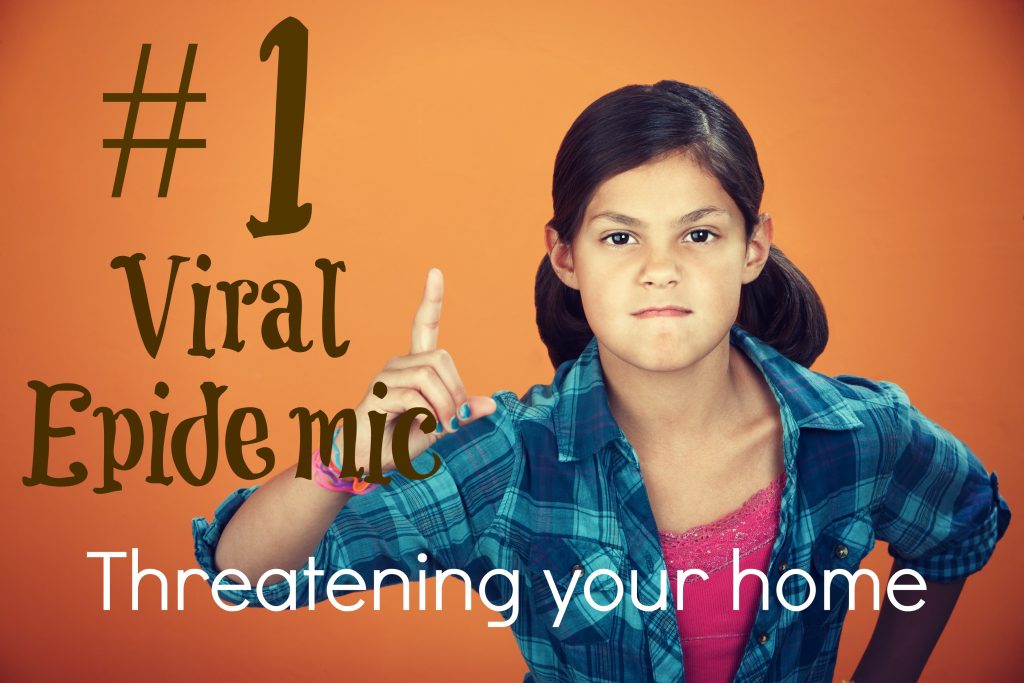Podcast: Play in new window | Download
Subscribe: RSS
As a mindful parent you do everything within your power to establish a healthy environment where your kids can thrive. No way will you allow anything infectious to creep into your home. You scour the internet seeking solutions to anything kid related. When it comes to your kids, you are on the ball! No doubt, parents feel pressure when it comes to meeting the needs or demands kids present. It can be exhausting! You are the “Siri” to every kid problem–including boredom. Millennial kids are infected with a virus of entitlement. Many believe it is the responsibility of adults: parents, teachers, coaches, etc… to make life as easy and fun as possible. Kids expect much from adults and little from themselves.How the Entitlement Virus Entered Our Culture
The entitlement virus did not appear over night. It slowly creeped into our culture. Here are three conditions that contribute to the problem.Reaction to authoritarian parenting style
In the post-Depression, WWII Era, parents vowed that their children would not suffer the hardships they endured growing up. They wanted their kids to have things they were not afforded. Consequently, parents were diligent in pursuit of the American Dream. Parenting styles were fashioned after the military stressing the importance of authority, discipline, and responsibility. Kids new what was expected of them: beds made, chores done, homework completed, and tardiness to school unacceptable. Punishment for non-compliance was swift. It often came in the form of groundings, spankings, and extra chores. Parents ruled, kids obeyed. If a child dared to question a parent’s demand, they could expect to hear “because I said so!”.[mk_message_box]I offer solutions to this problem in my book “Bringing Respect Back: Communicating Without the Conflict”. See link on the right.[/mk_message_box]
Dual-income households
Parents in successive generations continue striving to give their kids more than what they had growing up. This sparked a new movement toward dual-income families. Women entered the workforce. The phenomena of daycare centers and “latch key children” followed. Balancing two careers with managing a household put a lot more pressure on parents. The amount of energy required on a daily basis takes it’s toll. Many parents feel stressed and overwhelmed. Furthermore, they feel guilty that they are not around enough or doing a good job in parenting. To compensate, parents started expecting less of their kids and doing more for them.Media influence
Consider how much media permeates our lives. A few generations ago kids listened to radio and went to the movies. Today children have access to media in multiple forms: TV, computer, smartphones, and tablets. Kids are influenced by entertainment, advertisement, and social media to believe they are entitled to have the best in life. They are also lead to believe that adults exist to make it happen.Dangers of entitlement
Some argue that entitlement is good for kids. “Giving kids more than what we had is a good thing. What’s the harm?” Making kids the center of attention all the time is not good for them. It gives them more power than they are prepared to wield. You can see it by the way some kids order their parents around, have tantrums in the store, or win tug-of-war battles over homework. It seems no matter what parents do, it’s not enough to satisfy entitled kids. They want more attention, more things, and more, and more, and more… Here are four ways an entitlement virus affects the health of a family.It stunts your child’s growth
I am not talking about physical growth. Entitlement stunts their development in these areas.- Cognitively – parents who do too much for their kids, inhibit the development of their problem solving skills.
- Emotionally – giving in to a child’s emotional outbursts inhibits their ability to develop emotional control or frustration tolerance. It reinforces impulsivity. Not good for kids.
- Socially – kids who are allowed to act out with you will struggle keeping friends. Children need to develop social awareness and understand how to properly interact with others.
- Autonomy – kids who do not develop the skills above will struggle when they transition into adulthood. We see this happening already on campuses and in the workplace where millennials struggle to perform.

